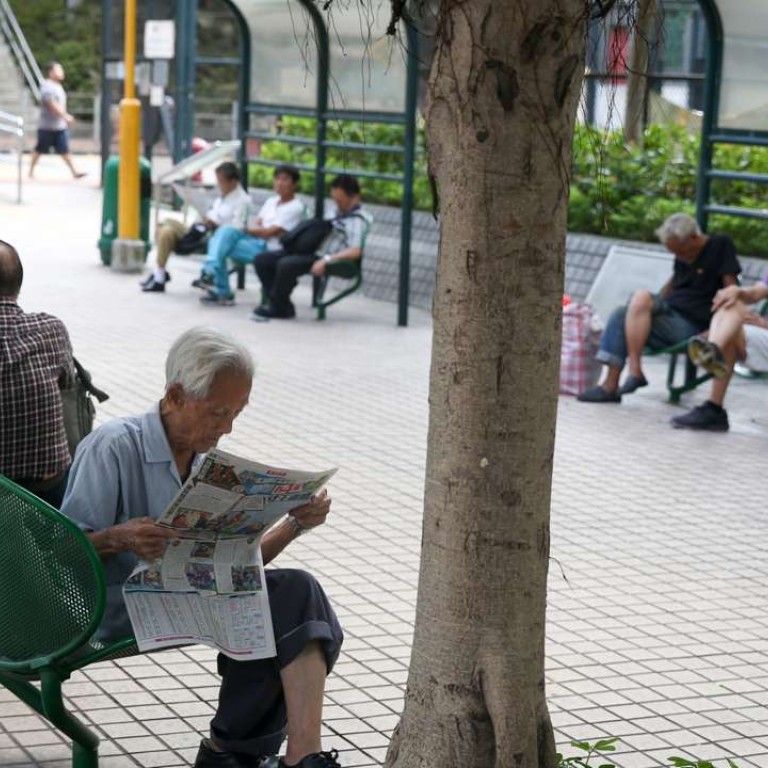
Hong Kong can and must do more to help the elderly
In less than five decades, a third of the city’s population will be aged 65 or above so work must start now to meet this challenge
Asociety can be judged by the way it treats those who are least able to take care of themselves. In Hong Kong, there is no shortage of services for the elderly and the disadvantaged. If public spending is any reference, funding for elderly services has surged by 55 per cent over the past four years. It is tempting to say that the government has by and large done a good job. A recent study on elderly services seems to lend support to such a view, too. In terms of overall well-being, our elderly citizens came in at 19th out of 97 territories. The result should not be surprising, given our longevity and high scores in safety and transportation.
But we are still lagging behind in many ways. For instance, the level of psychological well-being, such as a sense of purpose in life, was among the worst, according to the study by the Chinese University Jockey Club Institute of Ageing. Another survey released on Monday found that 60 per cent of our retirees named “resting and sitting” as their favourite pastime, raising concerns about their physical and mental health.
Indeed, it does not take studies to understand the problems facing the elderly. Due to age discrimination and labour market restructuring, many able workers cannot find jobs, even before they reach normal retirement age, let alone after it. This is not helped when the Mandatory Provident Fund scheme has only been in place forabout a decade. The insufficient pension coverage inevitably gives rise to a sense of financial insecurity among the elderly.
The government’s mission is to enable seniors to live in dignity and to provide them with the necessary support. While there are always new initiatives in the chief executive’s policy address each year, how much recipients can benefit is another matter. The studies are a reminder that there are still gaps to fill.
There is more to a caring society than just splashing money around. With more than one-third of our population set to reach the age of 65 or above by 2064, the demand for elderly care will spiral further. The well-being of our future society depends on how we respond to the challenge today.

